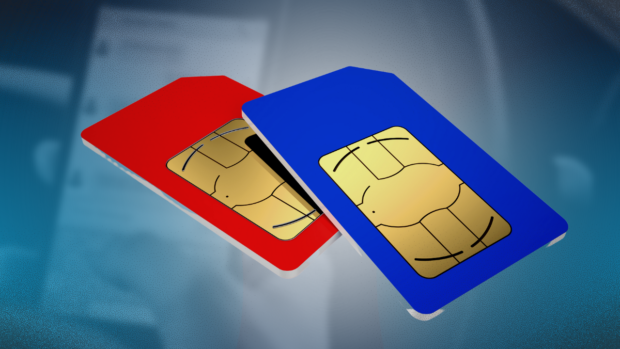Police seize 7,000 listed SIM cards in Bulacan

INQUIRER FILE PHOTO
More than 7,000 registered subscriber identification module (SIM) cards were seized from a Taiwanese national and his two Filipino accomplices in a raid in Bulacan province on Wednesday, a month before the already extended deadline for SIM card registration lapses.
In a report of the Anti-Cybercrime Group (ACG) of the Philippine National Police released on Thursday, the three were arrested in their house at Francisco Homes in San Jose Del Monte City around 10:50 p.m.
The identities of the suspects were withheld pending follow-up operations against their other accomplices in the racket.
ACG operatives were armed with a warrant to search, seize and examine computer data issued by Judge Felizardo Montero Jr. of Malolos City Regional Trial Court Branch 11.
The three are believed to have violated Section 14 (presumption and prima facie evidence of intent to defraud) of Republic Act No. 8484, or the Access Devices Regulation Act of 1998, in relation to RA 10175, or the Cybercrime Prevention Act of 2012.
Article continues after this advertisementThe suspects were brought to the ACG headquarters in Camp Crame, Quezon City, for their documentation and booking for inquest proceedings.
Article continues after this advertisementVerified accounts
A total of 7,308 SIM cards from different telecommunication companies were confiscated from the suspects. Some of the registered SIM cards were also found to have verified accounts on different e-wallet platforms, including GCash, Maya, GrabPay, Coins.ph and PayPal, as well as accounts on e-banks SeaBank, Maybank and UnionBank.
According to ACG spokesperson Capt. Michelle Sabino, the suspects have been buying registered SIM cards since last August, “usually from the people in the provinces who need fast cash.”
Each cost P400, provided that they were confirmed to have been registered and verified digital cash wallet accounts.
The SIM cards were then sold to scammers, who could eventually use them for fraudulent transactions and other crimes.
Sold online
In online market places, a registered SIM card may be bought for as low as P350 to as much as P500, which is 10 times the price of an unregistered SIM card that can be bought in legitimate outlets and resellers.
Sabino warned the public against selling their registered SIM cards, which is already prohibited under RA 11934, or the SIM Registration Act.
“The problem here for those who sold their registered SIM cards is that you are technically selling your identities to be used for fraudulent and criminal activities,” she noted.
“Once the cops start doing the money trail for these crimes, it [will] lead to you, you [will] be implicated and we [will] be coming after you,” Sabino explained.
Under RA 11934, the sale or transfer of a registered SIM card without complying with the law carries a penalty of imprisonment ranging from six months to six years, and/or a fine from P100,000 to P300,000.
The Department of Information and Communications (DICT) extended the registration of SIM cards until July 25, another 90 days from the original April 26 deadline.
DICT Secretary Ivan Uy said that as of May 10, around 95 million, or 95 percent to 96 percent, of SIM card owners who are expected to register have already registered, with only 100 million of the 168 million SIM cards remaining active.
Under the law, failure to register will result in the deactivation of SIMs, which will prevent a subscriber from receiving and sending calls and text messages and accessing mobile applications and digital wallets.